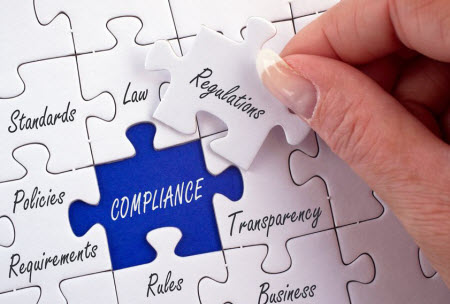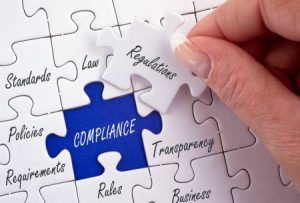
A federal judge has ruled that Kentucky’s attorney general violated the U.S. Constitution when he launched a wave of investigations of third-party sellers over alleged price gouging of essential supplies in their stores on Amazon during the coronavirus (COVID-19) pandemic.
The ruling, a victory for the Online Merchants Guild, which had sued the state to block the investigations, held that Kentucky Attorney General Daniel Cameron ran afoul of the constitution’s protections of interstate commerce and other provisions when he attempted to target individual sellers under state law.
“Is an old constitution relevant to a new economy? This case answers ‘yes,'” Judge Gregory F. Van Tatenhove of Kentucky’s eastern district wrote in a ruling granting the sellers’ group’s request for a temporary injunction to halt the investigations. “The protections of the Commerce Clause are available to those in a virtual economy no less than those who trade in an economy defined by bricks and mortar.”
A spokeswoman for Cameron noted that the attorney general has already appealed the ruling, and is due to file a brief on the merits by next month. She declined to comment on the district court’s ruling to grant an injunction against Cameron’s gouging investigations.
Paul Rafelson, executive director of the Online Merchants Guild, said he decided to sue over the issue after his law firm (a separate entity from the trade group) began fielding questions from hundreds of sellers in numerous states who said they were hearing from government authorities probing how they were setting prices.
Cameron announced the investigations in a news release in March, alleging that third-party sellers were inflating prices of then-scarce items like hand sanitizer and protective masks on their Amazon stores. Amazon worked with the attorney general to provide information about sellers who appeared to be price gouging, Cameron said.
Rafelson counters that much of the activity that investigators were probing occurred in January or February, before the onset of the pandemic.
In any case, Rafelson contends that the dispute is less about addressing the issue of price gouging — which he acknowledges is very real — than it is about an unconstitutional assertion of state authority over online sellers.
“I get price gouging laws. They have a purpose and they’re important,” Rafelson said.
But in the case of Kentucky, which has explicit laws on the books defining what constitutes price gouging, the practical effect would have been to compel all sellers — even those out of state — to price items in accordance with the state law, which Rafelson argued was a clear violation of the constitution’s Commerce Clause.
“You’re using a state law to regulate a national price. It doesn’t work,” Rafelson said.
A more effective approach, he argued, would be for states to pressure Amazon and other nationwide marketplaces to get more aggressive about curbing price gouging by including pricing controls that would incorporate provisions from the various state laws.
“If they want to protect the consumer you regulate the choke point,” Rafelson said. “There’s this singular choke point, and it’s the store of no accountability — Amazon.”
A spokesman for Amazon declined to comment on the case in Kentucky or the company’s approach to price gouging.
Amazon did address the issue back in March, writing in a company blog post that it is aggressively policing its marketplace for price gouging and working with state and local law enforcement
“In most cases, state attorneys general are on the front lines of these efforts,” Amazon said. “Amazon is eager to partner with — and has proactively reached out to — every state attorney general in the country.”
At the time, Amazon said that it was working with more than 10 state attorneys general as well as “numerous federal prosecutors” to aid their investigations, making no secret of its policy of handing over seller information to law enforcement.
“We are also proactively sharing information with state attorneys general and federal regulators about sellers we suspect have engaged in egregious price gouging of products related to the COVID-19 crisis,” Amazon wrote.
In contrast, Rafelson’s suggestion that states take a more aggressive approach toward regulating Amazon could set up a confrontation with the ecommerce giant that officials are eager to avoid. He argues that the company exerts an outsized influence on statehouses through its lobbying muscle and promises of jobs, warehouses and other facilities, recalling Amazon’s long-running fight over collecting and remitting sales taxes.
“It is political because they don’t want to regulate Amazon. Amazon has their tentacles wrapped around every state government, it seems,” he said.
Rafelson is looking for closer scrutiny at the federal level, where officials seem to be increasingly concerned about Amazon’s market power and its business practices. House lawmakers grilled CEO Jeff Bezos at an antitrust hearing last month on how Amazon competes against sellers on its marketplace.
The Department of Justice, meanwhile, has convened a task force to study price gouging and hoarding amid the coronavirus pandemic, vowing to “aggressively pursue bad actors who amass critical supplies either far beyond what they could use or for the purpose of profiteering.”
Rafelson is hopeful that that probe will take a hard look at the role of Amazon and other marketplaces, rather than simply target individual online sellers.
Meantime, Rafelson professes confidence about beating back the Kentucky attorney general’s appeal in the circuit court. “The constitutional law was obvious from the start,” he said.
He expects that the case will set a precedent that would discourage other state attorneys general from targeting individual sellers in a price-gouging probe, though he doesn’t discount the possibility.
“We’ll see where it goes,” he said. “If there’s another AG out there that really wants to make things complicated, we’re ready for it.”


